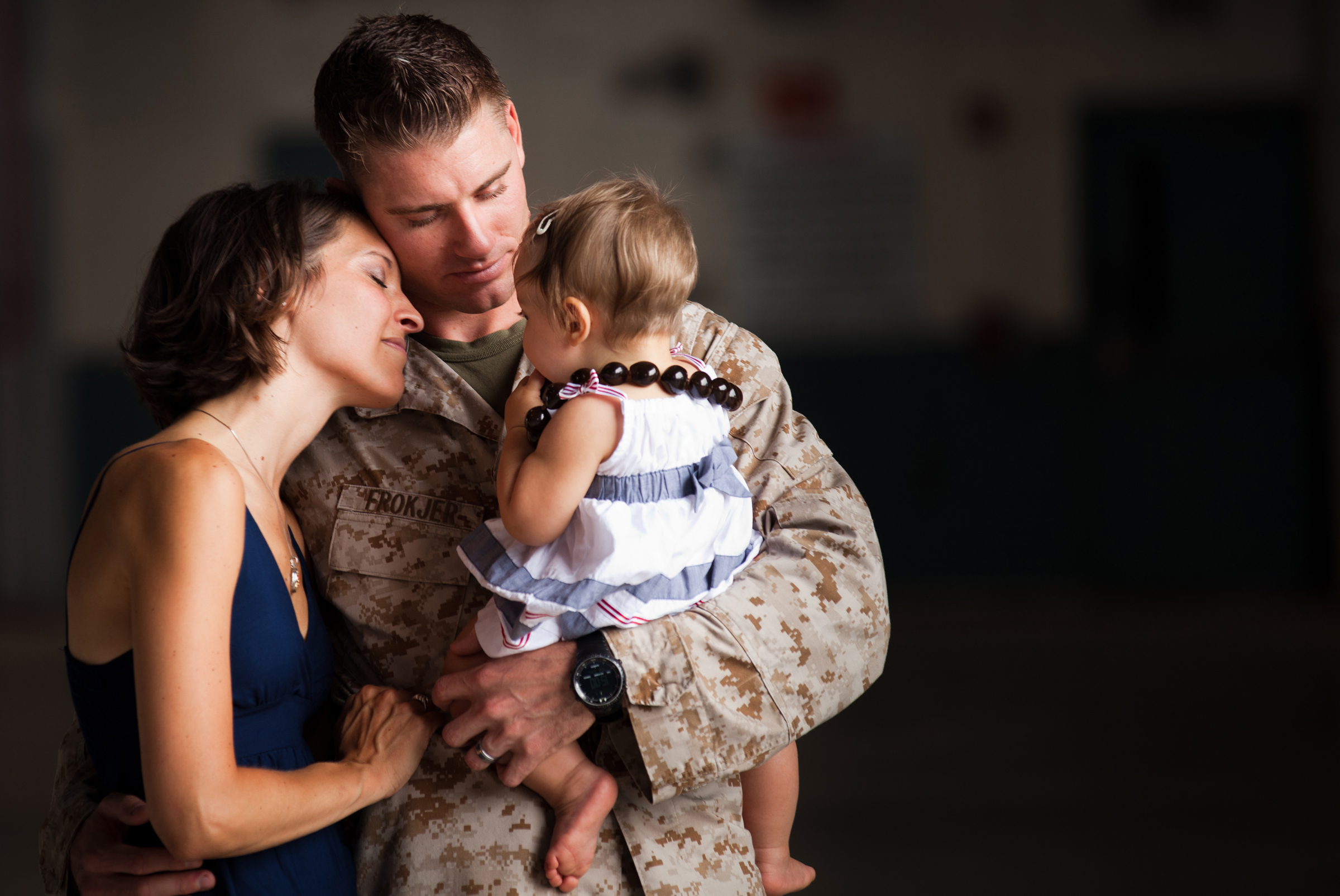Last Updated on May 10, 2019 by OCF Communications
When a military family chooses to be part of the military community, there are a number of challenges they will face—from frequent moves and long separations, to missed family activities and careers put on hold.
Maneuvering successfully through these challenges requires an enormous amount of time, energy, and emotional investment. It also requires military families to put in their rucksack the one tool that will enable them to live victoriously—a strong support system.
The first few years of my marriage were a struggle. I cannot tell you how many times the word “divorce” was uttered. I thought I knew enough and was more than capable to make it on my own. My wife and I were intelligent professionals and highly accomplished. However, lurking behind my reluctance to seek out the help of my support system was pride. I really did not want others to know what was going on in our marriage because of how it would make me look. I did not want the people in my life to know what was going on because of how I would be perceived. I was supposed to be the person who had everything together and who others went to for help, not the other way around.

Photo by LCpl Jacob Barber, USMC
Military life isn’t easy, and it’s important for families and individuals to develop support systems to work through a challenging lifestyle.
Things began to change when a group of friends who had gotten wind of what was going on in our marriage pooled their money together to pay for us to attend a weekend marriage conference. When I told my wife about what they had planned for us, tears welled up in her eyes. Brokenness and quiet desperation was written on her face. I knew it was time to act. If it had not been for our support system, I can honestly say that our marriage would have ended years ago.
Why is a support system important? One reason is this—it’s biblical. God created humans with the innate need to be in relationship with others, or said another way, to be part of a support system. Concerning a husband and wife, God said, “it is not good that man should be alone” (Genesis 2:18); concerning His church, He compared it to that of a physical body, that “For just as the body is one and has many members, and all the members of the body, though many, are one body” (1 Corinthians 12:12,14); and regarding friendships, God said, “Iron sharpens iron, and one man sharpens another” (Proverbs 27:17).
No person or couple has everything they need or has all the answers to do life successfully by themselves. Keep in mind “to support” simply means to give assistance, and it can take many forms: the person who volunteers to check on their neighbor’s house while they are out of town; the church group who delivers meals to a family who just gave birth to a child; the friends who volunteer to babysit so that another couple has time to work on their marriage; or maybe it’s the person who is willing to sit and listen over a cup of coffee to a friend who needs advice on how to handle a difficult situation.
In each case, it is the support system that helps give peace of mind and allows the individual, couple, or family to know that someone loves them and cares for them. In a sense, a biblical support system is not unlike what the military has coined as having a “battle buddy.”
[bctt tweet=”Military families must add this tool to their rucksack—a strong support system. ” username=”OCFDenver”]
One of the themes I have often heard from military couples is that they were unaware how important a support system would become until they experienced their first deployment or extended time away from each other. Such was the case with a young military couple I counseled once: “Jake” and “Sarah.” Having just found out the good news that they were expecting their first child, the couple received word that Jake would be deploying for 13 months to the Middle East. After his departure and without a support system in place, Sarah told me she became increasingly depressed and anxious.
This went on for several weeks until one day when Sarah met another military spouse while out walking her newborn daughter. It was only when she finally took action by attending church—after receiving multiple invitations—and began meeting regularly with a group of military women that Sarah says her outlook began to change for the better. With this new support system, Sarah found a place where she could not only receive prayer and be honest about her struggles, but also help others in the group to successfully navigate challenging situations similar to hers—it was a place where iron sharpened iron.
The couple went on to tell me the success of their first deployment—and their marriage—was directly related to the strong support system Sarah received from the group of women whom she referred to as her “life-line.” That is what a support system is there for—to help you make it through a difficult time or challenging season of life.
Take time to examine your own support system, or if you do not have one, get started now. The health of a marriage can often hinge upon the strength of the support system that has been established.
About Doug: Doug, who serves as a command chaplain in the Army Reserve, is the founder and president of Centurion’s Watch, a faith-based nonprofit organization dedicated to building strong military families. The servant leader and speaker produces a weekly blog on topics such as marriage, faith and leadership for a global audience.







 Don't miss your
Don't miss your
 Please Meet: Dr. Jeff Ginther, COL, USA (Ret.
Please Meet: Dr. Jeff Ginther, COL, USA (Ret.
Leave A Comment